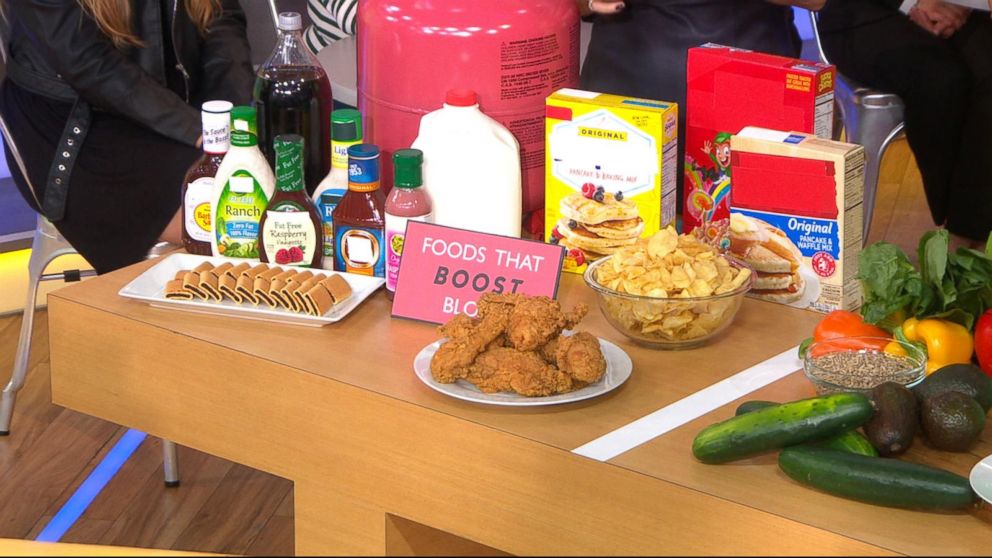Beyond the scale: How to beat bloating
All right, Eva, thank you. To our series “Beyond the scale” and this morning we’re showing you how to win the battle of the bloat. Our nutrition dream team is here. Senior medical contributor Dr. Jennifer Ashton and dietitian Maya feller. We have your attention. Let’s fight the bloat here.
Why do we experience this? That’s the million dollar question. A complex condition. It’s a symptom that a lot of people deal with. There are a lot of theories out there about what causes intestinal bloating range from intrinsic G.I. Problems like irritable bowel and alteration in the bacteria or gut microbiome, certain medications and dietary sensitivity or slow gut motion.
So let me show you why this is uncomfortable, robin. If you imagine this is the intestine. It’s normally collapsed. Things move through. It moves, it’s called peristalsis. In bloating it’s not just the volume in there, it’s actually — ? Oh, wow. The stretch in the intestines that causes so much pain. It is stretch sensitive. It can be so incredibly painful. Okay. So it helps when you feel this way, we make bad food choices. Absolutely. When you feel that stretch and that distention, you think, look, I’m not going to eat anything. I’m not going to drink anything and that’s exactly the opposite of what you want to do. You actually want to eat and drink so that you can move food through the bowel rather than be stuck and distended.
You talk about food and that is a big key. What are the ones we should avoid?
Look, everyone will be a little different with this but these are the big offenders, mainly processed foods. High in sugar and salt. Things that say fat-free actually can increase bloating so this is some examples. We kind of know that. But over on the side what can help us? So here we’ve got these gorgeous potassium rich foods and also have fiber in them. They’re easy digested. That will help the movement through the bowel, low stress. Okay, you all have some little tips that you think could help. What’s yours. That’s why I’m wearing my sneakers today. Right. Exactly because physical activity moves that abdominal wall, right.
Hes to get you moving and other things through. You thought we were going to have the treadmill for you. All bummed out. Here’s the secret weapon. We learned this in the surgical literature. Chewing gum. We would give it to patients after surgery who have what we call a postop I willous. Their intestines are temporarily paralyzed. The theory is the secretions and nerve signals get that intestinal movement we’ve been talking about moving forward and could work in a nonsurgical patient as well. If only I could chew gum and walk at the same time. Ba-dum-dum.


Leave a Reply